QuestionHello,
I have a male zebra finch that dislocated his hip (cause unknown). I took him to an avian vet who gave the diagnosis after x-rays. The vet attempted to "sling" his hip to keep it stationary, but the finch removed the bandage within the hour after it was constructed.
I kept him confined in a small cage for about 1.5 months. The prognosis was guarded, but the vet felt he could live a decent life even if he never fully recovered. She did not think euthanasia was necessary.
It's been over two months now and it looks like he will be forever handicapped. He can grasp with his feet, but he can't perch. His legs go way forward and he can't stand straight. They get caught in his wings, so he can only fly a couple inches off the bottom of the cage.
I've moved him from his small cage to a larger cage of his own. I fitted the bottom of the cage for his handicap and he seems to be doing well.
Since he can't go back to his "social" cage with the cockatiels, I bought him a female zebra finch to keep him company. He lost his finch partner about a year ago (passed away). He seemed really excited to have the new finch in the cage with him. But, it's breaking my heart to see him flopping all over to try and get to her. She seems interested in him and is staying nearby. But, she's checking out her new environment and flying around, perching, etc.
Is there anything else I can do to make this little guy's life better? I know you can't clip a finch's wings. But, given his handicap and his feet are getting caught on his wings every time he tries to move(which causes his belly to hit the cage bottom), is there something I can do give him more freedom of movement?
I'm grasping at straws here...thanks for listening!
AnswerI'm sorry to hear what happened to your finch. I have had handicapped finches before and know the heart break of it. However, it sounds like there is little else that can be done. As long as the litter on the bottom of the cage is soft you've done everything.
One thing you can try is put a perch on the bottom of the cage so she can perch next to him should the desire strike her. He will learn to adjust and will stop flopping around as much.

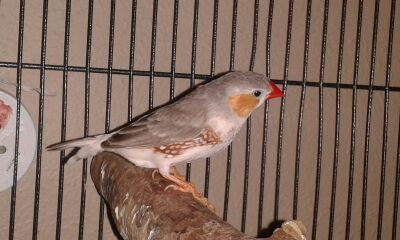 Zebra finches dying in nest
Question
Serenity #2
I have had zebra finches fo
Zebra finches dying in nest
Question
Serenity #2
I have had zebra finches fo
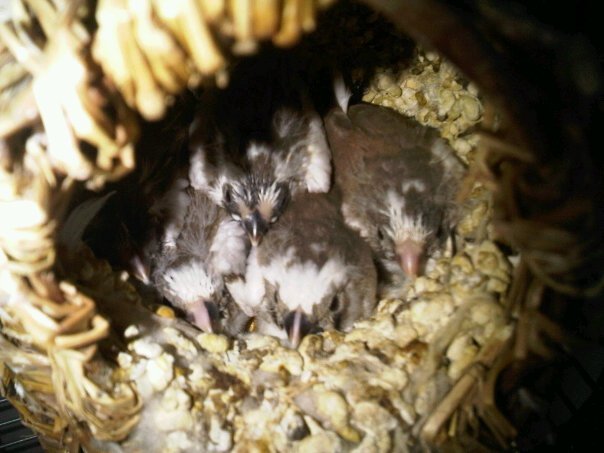 Death of Zebra Finch Parents with 5 babies left
Question
My 5 baby finches
Today I have discovered that
Death of Zebra Finch Parents with 5 babies left
Question
My 5 baby finches
Today I have discovered that
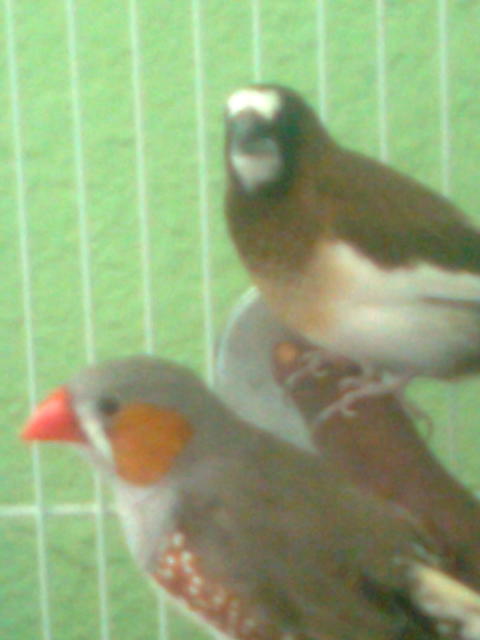 baby finches need help
Question
Picture of male and fe
Dear Megan,
&nbs
baby finches need help
Question
Picture of male and fe
Dear Megan,
&nbs
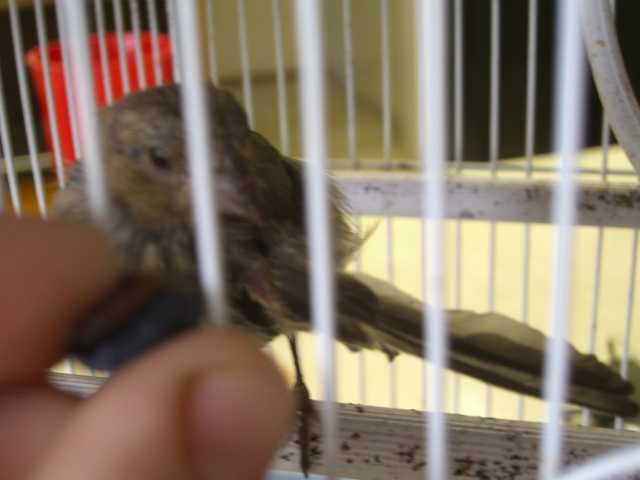 Raised and rescued finch found attacked in cage broken wing please help
QuestionFinch(chirpy)attacked
QUESTION: Hi, Ive
Raised and rescued finch found attacked in cage broken wing please help
QuestionFinch(chirpy)attacked
QUESTION: Hi, Ive
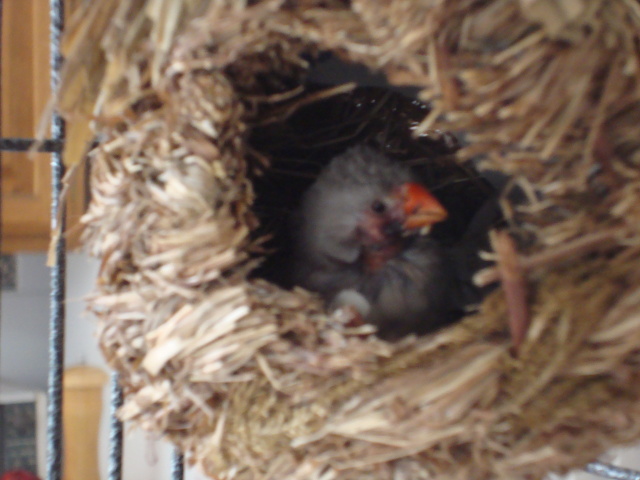 Zebra Finch Pecking at mate
Question
Pecked Zebra Finch
Hi, I have two zebra finche
Zebra Finch Pecking at mate
Question
Pecked Zebra Finch
Hi, I have two zebra finche